Incarnation Anglican: The Tiny Way
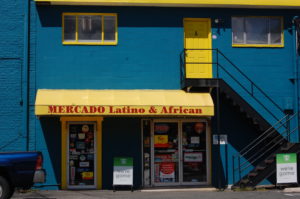 My family lives along Columbia Pike in South Arlington. When I walk to CVS, I hear dozens of languages being spoken and see women in burqas, men in shalwar kameez, and little girls with shaved heads. When I take my kids to the playground after dinner, I find myself talking to parents from Afghanistan, Bolivia, Bangladesh, and Eritrea. I watch dads playing pick-up soccer games in empty lots, cheered on by their kids. I chat with lifelong South Arlingtonians who are proud of this area’s history and are uncertain about its future. I can buy fresh injera with my Big Gulp from the 7-Eleven on the corner. On Fridays, I watch women in headscarves stream through the neighborhood, pushing their strollers toward one of South Arlington’s three mosques (one Bangladeshi, one Somali, one Moroccan).
My family lives along Columbia Pike in South Arlington. When I walk to CVS, I hear dozens of languages being spoken and see women in burqas, men in shalwar kameez, and little girls with shaved heads. When I take my kids to the playground after dinner, I find myself talking to parents from Afghanistan, Bolivia, Bangladesh, and Eritrea. I watch dads playing pick-up soccer games in empty lots, cheered on by their kids. I chat with lifelong South Arlingtonians who are proud of this area’s history and are uncertain about its future. I can buy fresh injera with my Big Gulp from the 7-Eleven on the corner. On Fridays, I watch women in headscarves stream through the neighborhood, pushing their strollers toward one of South Arlington’s three mosques (one Bangladeshi, one Somali, one Moroccan).
Though it’s just a few miles from Restoration, my neighborhood can feel like a different world. And yet, just like Restoration’s neighborhood, it is full of people who are struggling to make life work in an expensive suburb of DC; people who are lonely and longing for friendships; people who want the best for their kids; people who are spiritually hungry and curious about Jesus. And thus, Restoration is planting a new church community among my neighbors called Incarnation Anglican Church, and I’m humbled and excited to join Liz Gray and Morgan Reed in this work.
I love this neighborhood. My husband and I have always dreamed of living cross-culturally. My children are flexible and adventurous and can roll with the occasional late night playing by streetlight with neighbors. Our neighborhood suits us. But it also keeps us perpetually off-kilter. I often find myself the only native English speaker or the only white person in a given place. I encounter mental illness on the street corner. I engage in awkward, broken conversations and I laugh too loudly at things I’m not entirely certain are jokes. Artisanal coffee is nowhere in sight, though I dare you to find a better salteña.
This place stretches me. Its unfamiliarity reminds me in a tiny way what it is to feel not quite at home, even in my own neighborhood, language, and skin; something many of my neighbors feel every day. As such, I have made it a sort of spiritual discipline to walk places I would normally drive; to talk to people I would normally avoid; to cross the street when I feel like hiding in my house; and to shop in places where I frequently misread the cultural cues. It is a tiny way of laying down my cultural competency and my comfort so that I can learn more fully what it means to love my neighbor, to listen and observe and wait and be dependent. And goodness, it drives me to prayer like nothing else.
It is these tiny, daily acts in my neighborhood that make me most excited about what Incarnation could become. What would it look like to form a community willing to engage in small acts of discomfort so that we can love our neighbors better? What would it look like to worship with people who keep each other perpetually off-kilter? What would it look like to form a community in which the only shared culture is that of the kingdom of God? How can our tiny, slow, awkward work of sharing Jesus with our neighbors lead us deeper into worship, deeper in dependence on the Spirit, deeper into the reality of the upside-down kingdom? I am watching God slowly begin to answer those questions in my neighborhood. In the meantime, I’ll keep laughing at the wrong moments and eating salteñas with abandon.
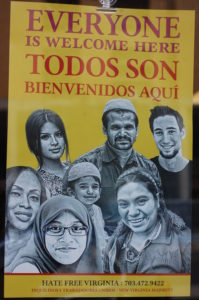
Want to hear more about Incarnation? Email me, Morgan, or Liz. We’d love to grab a cup of coffee and chat!
morgan@incarnationanglican.org
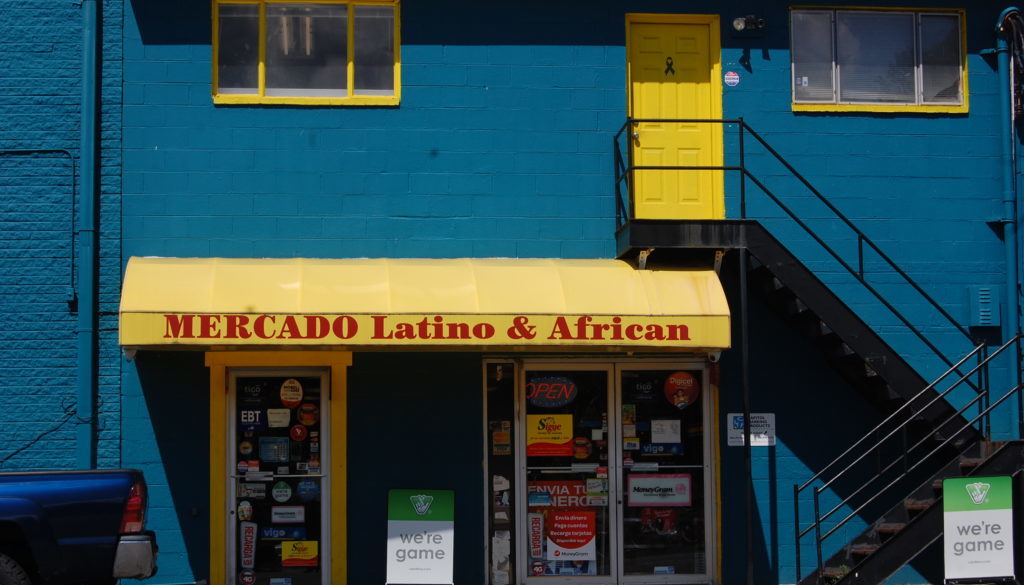
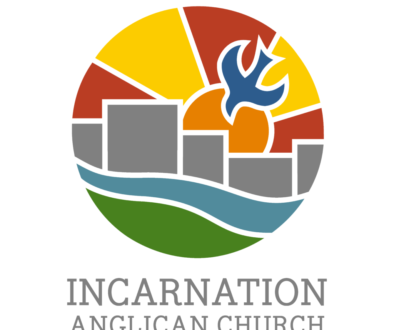
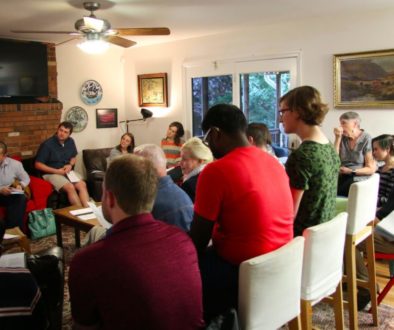

October 10, 2017 @ 4:26 pm
Awesome blog Amy – we haven’t met yet, but I look forward to it. I admire the heart you have for your community, and hope Incarnation is filled with people who love God, and want to know their neighbor – Micki